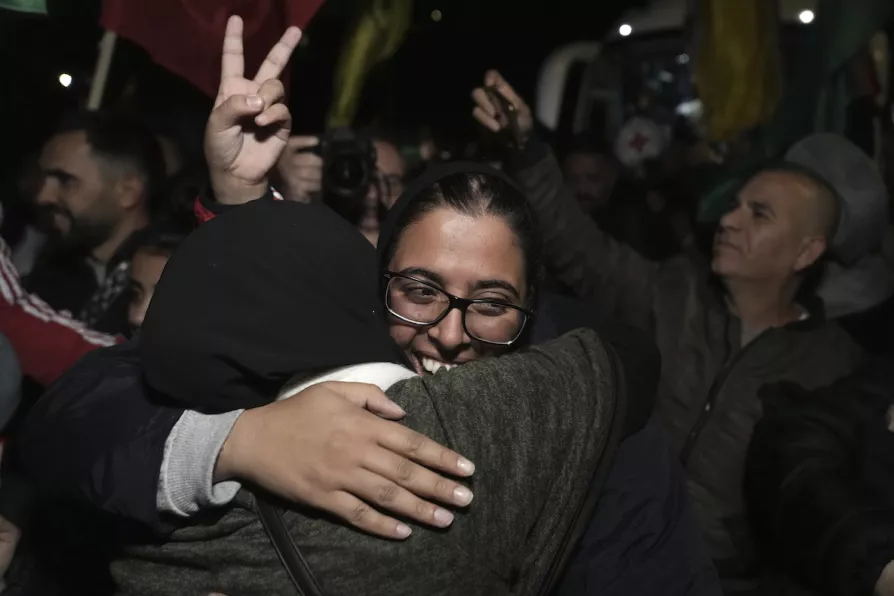A vast US war fleet deployed in the south Caribbean — ostensibly to fight drug-trafficking but widely seen as a push for violent regime change — has sparked international condemnation and bipartisan resistance in the US itself. FRANCISCO DOMINGUEZ reports

 Palestinian Fairuze Salameh is greeted after she was released from prison by Israel, in the West Bank town of Ramallah, early Wednesday Nov. 29, 2023
Palestinian Fairuze Salameh is greeted after she was released from prison by Israel, in the West Bank town of Ramallah, early Wednesday Nov. 29, 2023
THE whole thing may appear to be an exercise in futility, but there is a reason why Palestinians are keen on releasing their prisoners, despite the heavy price they continue to pay for their freedom.
It may seem rational to ask the question: what is the point of releasing a few Palestinian detainees from Israeli prisons, if the price of doing so is the death of over 15,000 Palestinians in Gaza?
In fact, even if all Palestinian prisoners — numbering about 7,000 — are released, they would not even amount to 30 per cent of the total number of Palestinian dead and missing, so far, in the ongoing Israeli genocide in the Strip.

With foreign media banned from Gaza, Palestinians themselves have reversed most of zionism’s century-long propaganda gains in just two years — this is why Israel has killed 270 journalists since October 2023, explains RAMZY BAROUD

RAMZY BAROUD highlights a new report by special rapporteur Francesca Albanese that unflinchingly names and shames the companies that have enabled Israel’s bloody massacre in Gaza












